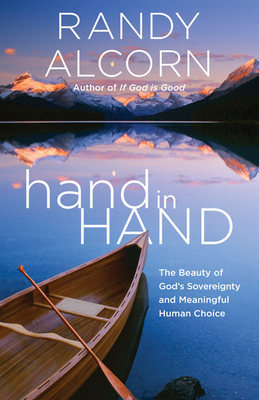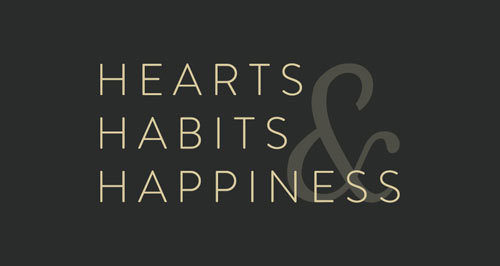Randy Alcorn's Blog, page 172
December 3, 2014
Singleness and the Church: A Valuable Perspective for Everyone

If you’re a regular reader of my blog, I hope you’ve enjoyed the videos from EPM’s Julia Stager we’ve shared so far. Julia’s video blog today is on the topic of singleness and the church. I encourage everyone, single or married, to listen to her insights and wise advice. I found this very helpful for me personally.
If you’re interested in watching the rest of Julia’s videos, you can subscribe to her YouTube channel: Crossover.

Each blog regularly appears on my Facebook page. If you’d like to comment or see others’ comments, we invite you to join us there.
photo credit: seyed mostafa zamani via photopin cc
December 1, 2014
Why We Need the Whole Counsel of Scripture

I once spoke to eighty college students about a sensitive theological question: “Can true Christians lose their salvation?” First, I asked them to commit themselves to a yes or no answer. I separated them, according to their answers, on opposite sides of the room, breaking them up into small groups.
Next I gave everyone a handout featuring twenty passages of Scripture. After reading these aloud, the students were to discuss in their groups and decide: “If these were the only Scripture passages I had, would I answer the question yes or no?”
Tensions rose. On both sides of the room, students looked confused, and some were angry.
Only afterward did I explain that I’d given each group different handouts consisting of entirely different passages. The Scriptures each group was given appeared to teach an answer exactly opposite to the position they’d said they believed.
My main take-away was that we need to establish our positions in light of all Scripture, not just our preferred passages that support what we wish to believe.
The issue of whether Christians can lose their salvation is one that involves matters of God’s sovereignty and human choice. The question typically gets one answer from those called Arminians and the opposite answer from those called Calvinists. John Wesley is seen as the classic Arminian, while John Calvin (surprise!) is the classic Calvinist; but, trust me, neither Calvin nor Wesley were idiots (which I wanted to help those eighty college students understand).
Unfortunately, the terms Calvinist and Arminian, while generally helpful, suggest many inaccurate assumptions and stereotypes. Some Calvinists are radically different from others, and the same can be said for Arminians. As general descriptions of theology, Calvinism and Arminianism can be helpful terms, but they’re decidedly unhelpful when it leads to the kind of thinking (for either group) that concludes, “They all believe A, and none of them believes B.”
Modern Calvinists often emphasize certain aspects of Calvin’s writings and doctrine more than others. They may overlook, for example, Calvin’s emphasis on our mystical union with Christ and the Holy Spirit, or miss the warmth of Calvin’s love for Christ. They may never have read how Calvin detested those “who are content to roll the gospel on the tips of their tongues when its efficacy ought to penetrate the inmost affections of the heart, take its seat in the soul, and affect the whole man a hundred times more deeply than the cold exhortations of the philosophers!" [i]
Similarly, modern Arminians are often less Calvinistic than Arminius was. For instance, some speak disparagingly of the doctrine of total depravity which Arminius affirmed, as did Wesley. On the other hand, many of them reject the Wesleyan doctrine of sinless perfectionism, which Arminius did not hold to.
Both “sides” love God and believe his Word, but they emphasize different portions of it. Therefore the common attitude, “If you really believed the Bible, you would agree with me,” reflects a far too simplistic approach.
If we want to better understand any doctrine or teaching, we must consider not bits and pieces of the Bible but “the whole counsel of God” (Acts 20:27, ESV). The Bible features a staggering breadth and depth of truth that selective proof-texting can never reflect.

[i] John Calvin, Institutes of the Christian Religion, ed. John T. McNeill (Louisville, KY: Westminster John Knox, 2006), 1:688.
From Eternal Perspective Ministries
One of the most perplexing theological questions—Is it possible to reconcile God’s sovereignty with human choice?—is also one of the most personal. A careful guide through Scripture, hand in Hand shows us why God’s sovereignty and our choices were meant to go together.
Randy’s book hand in Hand is available from EPM for $11.99 (retail $14.99).
Plus, today, Monday December 1 only, we’re offering FREE standard shipping on all orders from our online store!
November 28, 2014
Golden Retriever Fails Obedience Test
As owners of a Golden Retriever, Nanci and I can totally relate to this video. Note the concentrated obedience of the first two dogs who pass all the distractions and the treats to run their hearts out. Then, note the Golden Retriever. These dogs are so fun, but our own dog Maggie definitely has a mind of her own. Why would you pass by all that good stuff?

Each blog regularly appears on my Facebook page. If you’d like to comment or see others’ comments, we invite you to join us there.
November 26, 2014
Prayer + Thanksgiving = Peace

When one of our daughters had surgery a few years ago to remove a mass suspected to be cancer (it wasn’t), my wife Nanci and I were grateful to the surgeon who operated on her. But we weren’t praying to the surgeon. We prayed to God, and credited Him for the results. Our highest gratitude was to our Savior. We knew the surgeon’s hands were under God’s sovereign control, making us more grateful—not less—for the surgeon’s God-given skill.
Of course, not every circumstance will turn out as we hope and pray. Either way, our gratitude for God’s sovereign plan, and for His promise to work all things for the ultimate good of those who love Him (Romans 8:28) will make us slower to blame others and less likely to be embittered against them.
“Do not be anxious about anything,” the apostle Paul wrote, “but in everything by prayer and supplication with thanksgiving let your requests be made known to God. And the peace of God, which surpasses all understanding, will guard your hearts and your minds in Christ Jesus” (Philippians 4:6-7, emphasis added).
Prayer plus thanksgiving equals peace.
We must recognize, however, that God’s will is often different from ours. He is never under any obligation to do as we ask. Though we are free to ask Him to deliver us from something especially difficult or painful, the final outcome of every situation is solely in God’s hands. Proverbs 19:21 declares, “Many are the plans in the mind of a man, but it is the purpose of the LORD that will stand.” While we may only see our earthly circumstances, God is working to increase our dependence on Him and to make us more like Christ. We should thank God no matter what, not out of pretense, but out of trust in His wisdom, goodness and love.
 Dr. Helen Roseveare was a medical missionary to the Congo during the 1950s and 1960s, where rebel armies posed a constant threat to her team’s work and safety.
Dr. Helen Roseveare was a medical missionary to the Congo during the 1950s and 1960s, where rebel armies posed a constant threat to her team’s work and safety.
In August of 1964, word spread that the local chief had been abducted and flayed alive. One night Helen and the other women missionaries who had not already fled the country were seized at gunpoint by guerrilla soldiers who took over the hospital compound and occupied it for five months. The women were savagely beaten, humiliated, and raped by the rebel soldiers.
She has never forgotten that first very dark night: “I felt unutterably alone. For a brief moment, I felt God had failed me. He could have stepped in and prevented this rising crescendo of wickedness and cruelty. He could have saved me out of their hands. Why didn’t He speak? Why didn’t He intervene?”
But in the midst of that terrifying ordeal, as she cried out to the Lord, she sensed Him saying to her, “Helen, can you thank Me?” Helen wrote, “That healing and release began when I said, ‘Lord, I’m willing to thank You for trusting me with this experience, even if You never tell me why.’ No, my circumstances didn’t change. But He changed me in the midst of them.”

Each blog regularly appears on my Facebook page. If you’d like to comment or see others’ comments, we invite you to join us there.
This article originally appeared in the Fall/Winter 2014 issue of Eternal Perspectives magazine.
November 24, 2014
I Will Choose to Trust God Today

In her book Choosing Gratitude, Nancy Leigh DeMoss shares a pledge written by a Bible teacher named Russell Kelfer. He challenged believers to write these words on a sheet of paper, and sign their names, then make a habit of recommitting themselves to it on a regular basis:
Having been born into the kingdom of God, I do hereby acknowledge that God’s purchase of my life included all the rights and control of that life for all eternity.
I do further acknowledge that He has not guaranteed me to be free from pain or to have success or prosperity. He has not guaranteed me perfect health. He has not guaranteed me perfect parents. He has not guaranteed me perfect children. He has not guaranteed me the absence of pressures, trials, misunderstandings, or persecution.
What He has promised me is eternal life. What He has promised me is abundant life. What He has promised me is love, joy, peace, patience, gentleness, meekness, and self-control. He has given me all of Himself in exchange for the rights to my life…
Therefore I acknowledge this day the relinquishment of all my rights and expectations, and humbly ask Him by His grace to replace these with a grateful spirit, for whatever in His wisdom He deems to allow for my life.
In other words, this day—like every other day—belongs to God, not me. So, if God determines that I should spend time contending with a flat tire, an unpleasant confrontation, or even an unexpected trip to the emergency room, that’s completely up to Him. He knows best. He’s the master, I’m His servant. I have trusted Him with my eternal life, and I will trust Him with my life today.

Each blog regularly appears on my Facebook page. If you’d like to comment or see others’ comments, we invite you to join us there.
This article originally appeared in the Fall/Winter 2014 issue of Eternal Perspectives magazine.
November 21, 2014
Backslashes vs. Forward Slashes
Elsewhere I’ve written about many myths and outdated grammar that people routinely think are correct, and they’re driven crazy by authors who are “wrong.” In some cases the authors are wrong, in many cases they are right and the reader is wrong, and in many other cases, either way of saying it is fine.
Having received such letters, as all writers do, I’m the last person who wants to be picky about either grammar or punctuation. But let me choose an example that may be the single most often misstated term in punctuation. That’s the backslash versus the slash, which is now often called the forward slash. At least 90% of the time these terms are used, it’s incorrect. For instance, people in radio and on TV habitually say “backslash” when referring to website addresses.
Suppose someone wanted to link people to my different books on Heaven. They could write http://www.epm.org/heaven. That is correct as written (even though in most cases you don’t need the http:// or the www, but there are exceptions).
What is incorrect is when it is spoken like this, as it’s often done in radio interviews: “See http colon backslash backslash www dot epm dot org backslash heaven.” Though it’s nearly always stated this way it’s exactly wrong—those punctuation marks, “/,” that are referred to as backslashes, are actually not. They are forward slashes.
This illustration may help to get it straight:
Assume a person is walking the same direction we write in English and most (though certainly not all) languages, from left to right.
if the person leans backward, he\she looks like a backslash
if the person leans forward, he/she looks like a forward slash

The reason for this common error is probably that in handwriting, most people making a true forward slash begin at the top, which is to the right, and move to the bottom which is to the left. Hence, since in English we write left to right, they are moving backwards to make a forward slash! And they usually move forward to make a backslash. The confusion is understandable, but if you think in terms of the person walking to the right, as above, it should always be clear.
Anyway, it makes no difference what we call slashes if it’s written correctly. But when web addresses are given audibly, it can get confusing. When someone is telling me on the phone to enter a backslash, I usually guess they probably really mean a regular slash (forward slash), but then, maybe they don’t… Trial and error gets it right, but a correct use of terminology would help.

Each blog regularly appears on my Facebook page. If you’d like to comment or see others’ comments, we invite you to join us there.
November 19, 2014
Interracial Marriage Between Believers
 I’ve heard people use Deuteronomy 7:3-4 to say the Bible forbids interracial marriage. But God was warning His people not to marry the people of other races because they were not worshippers of God, but of idols, false gods. As Solomon was compromised through the idolatry of some of his wives, the people as a whole drew away from God.
I’ve heard people use Deuteronomy 7:3-4 to say the Bible forbids interracial marriage. But God was warning His people not to marry the people of other races because they were not worshippers of God, but of idols, false gods. As Solomon was compromised through the idolatry of some of his wives, the people as a whole drew away from God.
The Israelites would be led astray from God if they intermarried with idol worshippers, pagans, or heathens. This is exactly what happened to the nation as a whole: “Judah has been faithless, and abomination has been committed in Israel and in Jerusalem. For Judah has profaned the sanctuary of the LORD, which he loves, and has married the daughter of a foreign god” (Malachi 2:1). It was not a difference in skin color that was at issue!
In the New Testament people of all nations and races were coming to faith in Christ. The New Testament parallel to those Old Testament texts would be, “Do not be yoked together with unbelievers. For what do righteousness and wickedness have in common? Or what fellowship can light have with darkness?” (2 Corinthians 6:14).
It’s not interracial marriage that’s wrong, but marrying an unbeliever, or one who doesn’t believe in Jesus. (Of course, God forgives this sin, like others, and countless faithful Jesus-followers came to Christ after marriage, and their spouses haven’t yet done so—my point is not to criticize and certainly not to encourage divorce!)
I believe interracial marriage between believers is God-honoring, and can be a beautiful demonstration of Romans 10:12, “There is no difference between Jew and Gentile—the same Lord is Lord of all and richly blesses all who call on him.” It can also be viewed as a symbolic picture of Heaven, where we’re shown the beauty of all races (which in fact are part of the one human race) coming together to worship Jesus:
After these things I looked, and behold, a great multitude which no one could count, from every nation and all tribes and peoples and tongues, standing before the throne and before the Lamb, clothed in white robes, and palm branches were in their hands; and they cry out with a loud voice, saying, "Salvation to our God who sits on the throne, and to the Lamb." (Revelation 7:9-10)
I’ve mentioned before my respect for Trillia Newbell, author of United. This 4-minute video of Trillia and her husband Thern sharing their thoughts on living an interracial marriage is worth watching.
(John Piper has also written some helpful thoughts on race and interracial marriage.)

Each blog regularly appears on my Facebook page. If you’d like to comment or see others’ comments, we invite you to join us there.
Image credit: alfredo-9 via freeimages.com
November 17, 2014
hand in Hand: An Interview for the Religious News Service
These questions are from a recent interview with Jonathan Merritt about my book hand in Hand:
 1.
Christians have been debating God's sovereignty and humans' free will for centuries. What are you adding to the debate that is new?
1.
Christians have been debating God's sovereignty and humans' free will for centuries. What are you adding to the debate that is new?
I labored to be fair to each position, carefully avoiding misrepresenting them and turning them into easy-to-refute straw men. I avoided tilting the scales by selecting certain biblical passages while ignoring others that support or challenge either Calvinism or Arminianism. I included many sovereignty and many freewill passages.
This compels us to recognize there are two parallel lines that cross in God’s infinite mind, even if they don’t make sense to our finite minds. Accepting that God calls upon us to believe paradoxical (meaning apparently contradictory, not truly contradictory) ideas is key. That way we can place our faith in God rather than lose our faith or give up the discussion because we can’t figure out how to reconcile them.
I disagree with various ideas, but respectfully, suggesting they are based not on complete untruth but partial truths (which lead to partial falsehoods). I also include original charts and diagrams that I think will help readers understand the issues.
2. You've said the traditional approach to the debate isn't working. How so?
My approach is very respectful of opposing viewpoints which I believe fall within the bounds of Christian orthodoxy. I quote directly from Arminian and Calvinist scholars. I cite significant misrepresentations of Calvinism by Arminians and Arminians by Calvinists.
I tried hard, with critiques from both Arminian and Calvinist theologians, to state their positions as their proponents would. I show how each positon can be supported by some Scripture. But I tried to show the need to bring all Scripture to the table, and to embrace paradox rather than rejecting one position in favor of another.
I quote from Arminius who glowingly complemented John Calvin’s commentaries. I cite Calvinist Charles Spurgeon who expressed deep respect for Arminian John Wesley. I tell the moving story of evangelists Wesley and George Whitefield, whose beliefs once separated them, but who came to love and respect each other.
We wrote what I think are very helpful group discussion questions, designed so people with different perspectives could look at Scripture together and discuss these issues freely and respectfully.
 3.
Why is the first "hand" in the title not capitalized while the second one is?
3.
Why is the first "hand" in the title not capitalized while the second one is?
The lower case hand represents humanity while the uppercase Hand is the hand of God. God’s Hand controls far more than ours, and He can at any time tighten or loosen his grip. Our choices are important, but His choices are much bigger than ours simply because He is infinitely bigger than we are!
Calvinists may think hand in Hand sounds too much like the cooperative work of two equals, which glorifies man and insults God. Arminians may think it implies that human beings are like children, with the child’s “choices” basically controlled entirely by the parent. (However, the child holding her parent’s hand is still free to do things with her other hand!)
4. Why do you prefer "meaningful human choice" as opposed to "free will?"
I think “free will” can mislead, because there are any number of choices we can’t follow through on. For instance, I can freely choose to fly but if I step off the roof to try it I soon discover I simply don’t have the capacity to fly.
But what limits us much further is that we are not only finite, but fallen. In Scripture we see that our wills are in bondage because we have inherited sin natures going back to Adam. I am not free, for instance, to make choices that earn my way to heaven! I much prefer the term “meaningful human choice,” because even when our natures prompt us to make particular choices that may not be entirely “free,” they are nonetheless meaningful and consequential choices.
The book’s subtitle is “The beauty of God’s Sovereignty and Meaningful Human Choice.” I believe there’s great intrigue and wonder in these issues, which should lead us not to frustration but worship.
5. Some Christian leaders have suggested that some natural disasters were ordained by a sovereign God. How do you respond?
God didn’t create a world with natural disasters but both Calvinists and Arminians agree He allows them as part of the Curse. Scripture shows repeatedly that God is sovereign over all nature. Jesus said of his Father, “He causes his sun to rise on the evil and the good, and sends rain on the righteous and the unrighteous” (Matthew 5:45). Psalm 147:18 says of God, “He makes his wind blow.” Blowing winds would include hurricanes and tornadoes.
Job 37:13 says, God “brings the clouds to punish men, or to water his earth and show his love.” Numbers 11:1 says when Israel grumbled against God, “Then fire from the LORD burned among them and consumed some of the outskirts of the camp.”
So Scripture shows that some natural disasters are indeed from God’s hand. However, it’s wrong to view every natural disaster as a direct judgment of God on sin, since when Jesus spoke of the man born blind in John 9:3, He said the disciples shouldn’t conclude his blindness was God’s judgment on some specific sin by him or his parents.
6. Make this debate practical for me. If I am already a Christian, why do I even care?
If I don’t have the freedom to make meaningful choices, it changes the way I live. It makes me a hyper-Calvinist or a fatalist. It makes me irresponsible and indifferent to the need to make wise and righteous choices, because it’s all in God’s hands, and what I think and do won’t matter in the end.
Believing in God’s sovereignty is immensely practical because if I view my life as random and in the hands of evil people or demons, then they can ruin my life. But if I accept that God is sovereign and that He promises to work all things together for good for those who love Him, then I have confidence that though my own choices are very real and important, at the same time my life is in infinitely bigger Hands than my own.

Each blog regularly appears on my Facebook page. If you’d like to comment or see others’ comments, we invite you to join us there.
photo credit: Justin in SD via photopin cc
November 14, 2014
Hearts, Habits & Happiness
From Kathy Norquist, Randy Alcorn’s assistant:

Last weekend I attended the three sessions of Randy’s Q & A on the joy of giving at Good Shepherd Community Church. The theme of the conference was aptly named “Hearts, Habits & Happiness.” I’ve never heard messages on giving so infused with joy! I especially loved seeing Randy’s passion for this subject and hearing how generous giving leads to much happiness.
The Q & A interview format is very engaging with Randy’s pastor asking questions and Randy frequently reading from and commenting on the many Scriptures that speak about money and possessions. This resource would be useful for individuals or in a group setting, church service or Sunday school class. I hope you enjoy these sessions and share them with others. May the Lord do a mighty work throughout the body of Christ.
Hearts, Habits & Happiness: Session 1 of 3
Hearts, Habits & Happiness: Session 2 of 3
November 12, 2014
Purity and Homosexuality
Two weeks ago our EPM staff member Julia Stager posted her first video on my blog: “Superheroes, Heresies and the God-man.” We got a terrific response from this video, and those still coming will be every bit as good! Our plan is to highlight another of Julia’s videos every other week.
Julia’s featured video today is on the critical topic of purity and homosexuality.
If you’re interested in watching Julia’s other videos, you can subscribe to her YouTube channel: Crossover.

Each blog regularly appears on my Facebook page. If you’d like to comment or see others’ comments, we invite you to join us there.



